| |
Montreal Sound
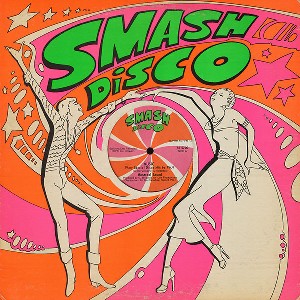
Music - 12"
Smash Disco - 1977
Michael Panontin
|
Montreal has always been a party town. But during the seventies, when disco was all the rage, its club scene was on fire and nearly rivalled that of New York City. Ground zero was the Lime Light.
The Lime Light got its start in September 1973 after Yvon Lafrance, inspired by what he had seen on a recent trip to the Big Apple, took over the second floor at 1254 rue Stanley and transformed it into the place to be in Montreal. The Lime Light's crowd was diverse - gay, straight, French and English - and deejays like George Cucuzzella and, especially, Robert Ouimet kept the dancefloors filled until 6 AM.
"I was playing for Montreal, not for a New York crowd," Ouimet told the Disco Delivery blog. "The culture [in Montreal] is a very mixed culture. French, all kinds of different kind of music in Quebec, Latin stuff, stuff coming from Europe. It was easy for me to put together and insert all that with the disco that I was playing. It was working. I would play [Haitian compas band] Tabou Combo, and people would go nuts over that!"
By mid-decade, Lafrance had expanded to the third floor and the Lime Light was starting to attract tourists from all over the world. During the '76 Olympics, for example, four delegations chose to party there. And visiting artists like Grace Jones, Kraftwerk, David Bowie and Iggy Pop would drop by post-show to hang out. There were live acts as well, with big names like Gloria Gaynor, the Trammps, Donna Summer and James Brown all gracing its stage.
As deejays like Ouimet sought out newer and hotter tracks, a local industry started to develop with a talented roster of producers making records specifically for the disco market. That list included the likes of Gino Soccio, Pat Deserio, the team of Joe La Greca and Joe Tortorici, and Gerry Bribosia.
The Belgian-born Bribosia came to Montreal with his parents in the late fifties and by the mid-sixties was fronting well-known garage rockers Les Miserables. When the clubs changed over from live music to a discotheque format in the seventies, Bribosia made the switch as well. His first disco single, 1976's 'Free Move', was a cheesy synth-drenched tune that sounded - to anglo ears at least - like something playing in a small bar in some obscure European art-house film. The following year he made the record that would blow up at the Lime Light and then in clubs all around the world.
Penned by Bribosia and Jerry De Villiers and issued under the name Montreal Sound, 'Music' took a pulsating bass riff and overlaid it with hand whistles, crowd noise and a sing-along chorus. Add to that hints of the Bar-Kays' 'Soul Finger' and it felt like a party on vinyl. In other words, the perfect club record. But things didn't end there.
Enter the trio of Pierre Gagnon, Allen Vallieres et Jean Barbeau, more popularly known as PAJ, who were splicing up tracks on an AKAI 4000 reel-to-reel tape deck to make them even more dancefloor friendly, a sort of early version of the the modern disco re-edit. When Ouimet gave their tracks a spin, the Lime Light usually went crazy.
"They started giving me edits. They said 'Listen to it' and I liked what I was hearing," he recalled, "and a few times, I stopped playing the original completely. I played their mix. Like [Denise LaSalle's] 'Freedom to Express Yourself'. My crowd knew only that mix. They don't know the original."
It was the summer of '77, still pre-Saturday Night Fever, but disco records in Quebec were starting to sell like hotcakes. PAJ had just recently scored some success with their re-edit of Bribosia's own Dracula Disco'. Their reworking of 'Music' came out that July and it went virtually stratospheric. The track was issued in the US on the T.K. Disco label, which had already enjoyed #1 singles by George McCrae and KC and the Sunshine Band and had the heft to do the same with 'Music'. By September 24th, it was top-15 in thirteen of sixteen markets on Billboard's Disco Action chart, including #1 in New Orleans and #2 in San Francisco. There were pressings in the UK, several European countries, Australia, and even down in South America (Venezuela, Colombia and Brazil). All told, the PAJ version of 'Music' sold some half a million copies.
Bribosia cashed in on the disco craze while he could, producing literally dozens of records in the next couple of years, including four LPs as Montreal Sound. But it was, to borrow from Walt Stillman's film, the last days of disco. Bribosia's output fell off a cliff in the early eighties. And Ouimet eventually left the Lime Light over what musicians would normally describe as 'creative differences', having developed an annoying habit of clearing the dance floor with new wave and punk.
Despite fervent attempts by the 'Disco Sucks' crowd to kill it off, disco survived. Or rather, discos survived, playing rap - 'Rapper's Delight' was massive in Montreal in 1980 - hi-NRG, house, techno, filtered disco, you name it. And so did Ouimet. He continued spinning well into the next millennium, even winning a 1994 JUNO along the way for Best Dance Recording ('Thankful' by Red Light featuring David Gordon). When Ouimet passed away in 2022, he was rightfully hailed by many for what he was: 'the Godfather of Montreal disco'.
(Clean copies of 'Music' can go for as much as $50 US these days.)
|
|
Suggestions
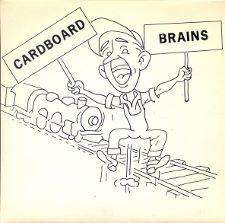
Cardboard Brains
Cardboard Brains 77 EP - 7"
(independent)
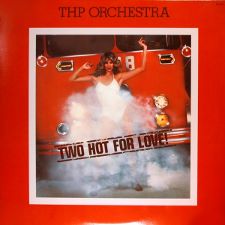
T.H.P. Orchestra
Two Hot for Love
RCA Victor
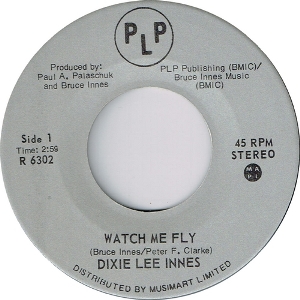
Dixie Lee Innes
Watch Me Fly / Just a Little Love - 7"
PLP
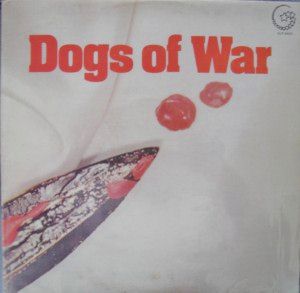
Dogs of War
Dogs of War
Generation
|








